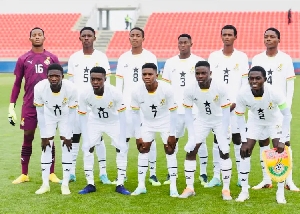Business News of Thursday, 14 June 2012
Source: GNA
Minister calls for collaborative effort to improve small scale mining

The mining sector currently contributes about 18 per cent of Ghana's total corporate tax earnings and 28 per cent of government revenue, Mr. Mike Allen Hammah, Minister of Lands and Natural Resources, said on Wednesday.
He said this when speaking on the topic: "Streamlining Small-Scale Mining, addressing the menace of galamsey", at the Western Region Policy Fair at Essipon near Takoradi.
Mr. Hammah said the sector also employs 26,000 people in the large scale and its supported services industry.
He said in the small scale mining sub sector, over 1,000,000 people are engaged in gold, diamond, sand winning and quarry industries; small scale miners contributed 23 per cent and 27.2 per cent of total national gold production in 2010 and 2011 respectively.
He said the recent spate of illegal small scale mining activities in the country is of concern to government and the high gold price on the world marker has made low grade ores profitable, thus illegal miners with their "get-rich-quick mentality" are creating difficulties for the state.
Mr. Hammah said the situation has been worsened by some landowners conniving and condoning with illicit miners by offering parcels of land for a fee.
He said key interventions by government to address illegal mining activities in the country include provision of equipment and financial support to legal small scale mining cooperatives to assist them improve upon their operations as well as a form of enticement for illegal miners to regularize their activities.
Mr. Hammah said another intervention is the establishment of Alternative Livelihood Projects (ALPs) in mining communities to employ excess labour.
He said currently, a 23,000 acre oil palm pilot project has been established in five mining communities in the Prestea-Huni Valley District, to provide livelihoods for people in the mining communities and also a means of diversifying the local economy in preparation for cessation of mining activities after the exhaustion of mineral deposits.
Mr. Hammah said other interventions are the promotion of geological investigation and demarcation of areas suitable for small-scale mining and the Mercury Pollution Abatement Programme, which has led to the development of a new method of gold processing without the use of mercury.
He said improving the small-scale mining sub-sector requires the collaborative efforts of all stakeholders who must be watchful and report activities of illegal miners to the appropriate agencies.**










